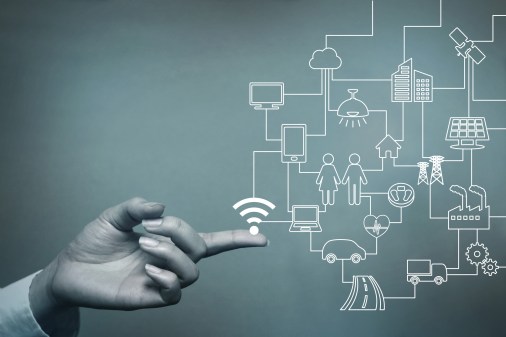With Internet of Things boom comes need for spectrum, industry says
Privacy and security typically drive the conversation when Congress convenes on Internet of Things regulation, but Tuesday several House lawmakers brought up a different concern: What about the spectrum needed to connect those devices?
Technology industry representatives said spectrum use in the U.S. continues to grow at a staggering rate — 55 percent year-over-year, according to Dean Garfield, president and CEO of the Information Technology Industry Council. With estimates of anywhere between 25 billion and 50 billion Internet-connected devices by 2020, Garfield told the House Judiciary Committee’s Subcommittee on Courts, Intellectual Property and the Internet there will be a corresponding boom in spectrum use.
Garfield and his fellow witnesses said Congress needed to free up spectrum, since the federal government controls most of it.
“Robust broadband networks are a fundamental building block to the IoT, and only with ubiquitous, high-speed, affordable broadband will the public and private sectors be able to derive the maximum potential the IoT will offer,” Garfield said in his prepared testimony. “Congress, and the relevant federal agencies, must continue to make spectrum available for mobile broadband and enable efficient spectrum management.”
Unlicensed spectrum, said Gary Shapiro, CEO of the Consumer Electronics Association, is not only necessary for technology companies dependent on the transmission of mobile information, but it also drives innovation to the tune of $62 billion, citing a report his association published last year.
“Unlicensed spectrum is essential to keeping us connected and advancing innovation and tech entrepreneurship in the 21st century,” Gary Shapiro said in that report. “Everyday devices that run on unlicensed spectrum are all around us — garage door openers, home security systems, baby monitors, all the products we have come to rely on that utilize Wi-Fi, and more. Unlicensed spectrum is the fuel that powers innovation in our increasingly digitized, interconnected and untethered world.”
During his testimony, he called it the lifeblood of IoT, and without, he said, the future benefits of an interconnected world cannot materialize.
Shapiro called the demand for spectrum a “crowded field” and proposed that in anticipation of the IoT device boom that the government should catalogue and repurpose unused spectrum. Even the Republican subcommittee Chairman Darrell Issa of California noted the very Capitol Hill room hosting the hearing was using a small portion of its available spectrum.
Garfield supported that notion.
“There’s a significant opportunity to more efficiently use spectrum and make more of it available,” which would benefit everyone including the financially troubled federal government, he said. If that happens, and as the number of consumer devices increases, he said, “the growth in [spectrum] use will explode.”






